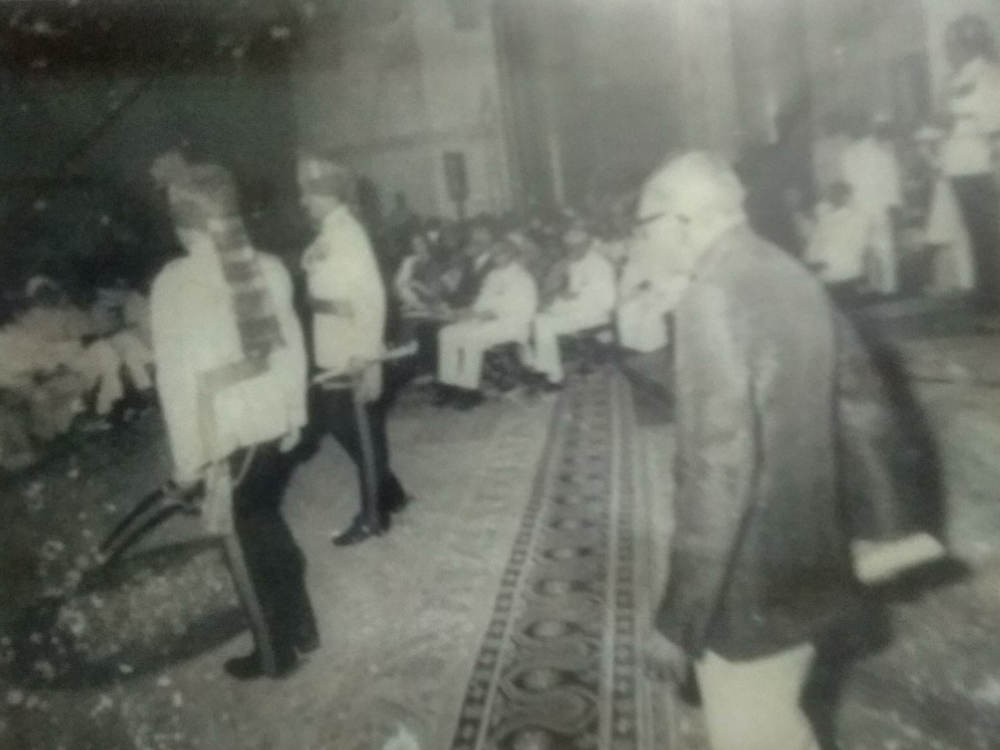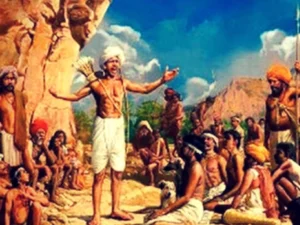Devendranath Samanta, a name that might not be widely known, played a crucial role in shaping the foundation of independent India. As a member of the Constituent Assembly, the body responsible for drafting the Indian Constitution, Samanta’s contributions were instrumental in ensuring that the rights and aspirations of all Indians, particularly those from marginalized communities, were reflected in the nation’s supreme law.
Early Life and Background
Devendranath Samanta was born into a humble family in the early 20th century in Bengal. Growing up during the British colonial rule, he was deeply influenced by the socio-political movements of the time, particularly the struggle for India’s independence. His education and early experiences in the nationalist movement instilled in him a strong sense of justice, equality, and the importance of self-governance.
As a young man, Samanta was drawn to the ideals of social reform and was deeply concerned about the plight of the marginalized sections of society. This concern would later shape his contributions to the Constituent Assembly, where he worked tirelessly to ensure that the new Constitution would protect the rights of all citizens, regardless of their background.
Role in the Constituent Assembly
Devendranath Samanta’s entry into the Constituent Assembly marked the beginning of his most significant political and social contributions. The Assembly, which convened for the first time on December 9, 1946, was tasked with drafting a Constitution that would guide the newly independent nation of India. This was a monumental responsibility, and the members of the Assembly were keenly aware that their work would have a lasting impact on the future of the country.
Samanta was appointed to several key committees within the Assembly, where he brought his deep commitment to social justice to the forefront. He was particularly focused on issues related to social equity, land reforms, and the rights of marginalized communities. His interventions were marked by a clear understanding of the challenges faced by rural India, where the majority of the population lived under conditions of poverty and oppression.
One of Samanta’s key contributions was his advocacy for land reform policies. He believed that land redistribution was essential to address the economic disparities in rural India and to empower the peasantry, who had been historically exploited by feudal landlords. His efforts were instrumental in shaping the debates around land rights, which eventually found expression in the Directive Principles of State Policy, a section of the Constitution that provides guidelines for the government to follow in order to achieve social justice.
Champion of Marginalized Communities
Devendranath Samanta was also a vocal advocate for the rights of marginalized communities, including the Scheduled Castes and Scheduled Tribes. He understood that the historical injustices faced by these communities could not be addressed without special provisions in the Constitution. His work in the Constituent Assembly helped ensure that the Constitution included provisions for affirmative action, such as reservations in education and employment, which were designed to uplift those who had been historically disadvantaged.
Samanta’s commitment to social justice extended beyond the Constituent Assembly. Throughout his life, he remained actively involved in efforts to promote education, healthcare, and economic development in rural areas, particularly among the most vulnerable populations. His work was guided by a deep sense of empathy and a belief in the transformative power of education and social reform.
Legacy and Impact
Devendranath Samanta’s contributions to the Constituent Assembly and to the social fabric of India are a testament to his unwavering dedication to the principles of justice, equality, and human dignity. While his name may not be as well-known as some of his contemporaries, his work has had a lasting impact on the lives of millions of Indians.
The Constitution of India, which came into effect on January 26, 1950, is a living document that continues to guide the nation. It is a testament to the vision and hard work of individuals like Samanta, who ensured that the Constitution would be a powerful tool for social change, protecting the rights of all citizens and promoting the ideals of liberty, equality, and fraternity.
Conclusion
Devendranath Samanta’s life and work remind us of the importance of perseverance, integrity, and a commitment to the greater good. His contributions to the Constituent Assembly were crucial in shaping a Constitution that sought to build a just and equitable society for all Indians. At Bharat Munda Samaj, we draw inspiration from leaders like Samanta, who dedicated their lives to the service of others, and we continue to work towards the ideals of social justice and empowerment that he championed. His legacy serves as a guiding light as we strive to uphold the rights and dignity of all people, particularly those who have been historically marginalized.




